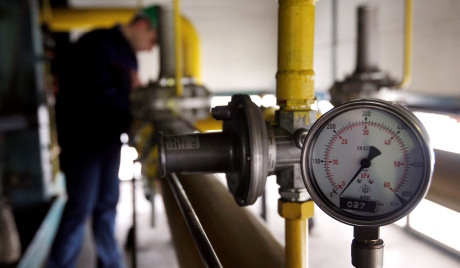
Lavrov’s Visit to Poland: Is Russia’s Rapprochement with Poland Real?
Publication: Eurasia Daily Monitor Volume: 7 Issue: 179
By:

In the last couple of years, Russia has engaged in a rapprochement policy with Poland preceding the death of Poland’s President, Lech Kaczynski and many leading members of the government in a fatal air crash on April 10, outside Smolensk,. However, this policy certainly received a tremendous impetus from that event as demonstrated by Russia’s seemingly openly emotional response to the tragedy. Russian foreign policy has in fact gradually shifted, expressed in a leaked foreign policy document, towards improved relations with Europe (Russky Newsweek, May 11). Foreign Minister, Sergei Lavrov’s recent visit to Poland intended to carry that process even further.
Lavrov’s talks with Polish Foreign Minister, Radoslaw Sikorski, and Prime Minister, Donald Tusk, covered issues of European security, Moscow’s perspectives as expounded in its draft treaty on the subject, future relations between Russia and the EU as Poland will be the EU president in 2011, as well as visa-free travel for Russians to EU member countries. They also discussed Kaliningrad, the progress of the commission to investigate troubled events in Russo-Polish history, and energy relations. Lavrov used the occasion to bring up the prospects for the Russian-EU Partnership for Modernization (Ministry of Foreign Affairs of the Russian Federation, www.mid.ru, September 3). He then delivered a speech to a gathering of Polish ambassadors. Both before and after the talks, Lavrov expressed general happiness with recent trends in bilateral relations and noted that several agreements with Poland are being drafted (www.mid.ru, August 30, www.mid.ru, September 5). At the same time the discussions, particularly with Poland’s ambassadorial corps, were “detailed and frank,” suggesting points of disagreement, particularly as regards the Partnership for Modernization. Equally, both sides apparently strove to enhance bilateral relations and move in the direction of a more genuine partnership. In that context, Warsaw expressed its desire for a “demilitarization” of the perennially troubled bilateral relationship (www.mid.ru, September 3; www.itnsource.com, September 3).
The good feelings expressed here certainly tally with the Tusk government’s efforts to establish a lasting demilitarized relationship and genuine partnership with Moscow. Thus, an energy agreement was also recently concluded between the two states. From the Polish government’s standpoint, this agreement will ensure the continuation of direct gas supplies from Russia to Poland for the long term. Specifically, this contract between Gazprom and the Polish Gas and Oil Company (PGNiG) increases their previous contract for gas exports from Russia, extending its duration from 2022 to 2037 and writing off Gazprom’s debts from 2008-09. Gazprom will also acquire a monopoly through the Yamal pipeline across Poland until 2045 (even as it is undermining that pipeline by building North Stream pipeline to Germany) along with very low gas transit fees. Not surprisingly, the EU initially opposed this deal (Gazeta Wyborcza, September 6). Yet, on September 14 the EU retracted its opposition to the deal that had been generated by the European Commission’s doubts about the operator of the Yamal pipeline supplying gas directly to Poland and through to Europe. An independent operator must supervise the gas deliveries to Poland in conformity with EU requirements, so that all market dealers have equal access to the infrastructure. Evidently those concerns were satisfactorily resolved by September 14 (ITAR-TASS, September 21).
Warsaw’s concerns about being bypassed for gas supplies due to the forthcoming operation of the Nord Stream pipeline clearly provided Russia with favorable terms. Nord Stream allowed Moscow to expand its power over recipients of its energy. Nevertheless, a more cynical interpretation of this deal and of the incentive for the rapprochement with Poland as part of the general turn to the West should be looked at. would cite not only the ongoing economic crisis in which Russia and Europe find themselves but also the potential that Poland might contain huge deposits of shale gas that would eliminate any need for Russian gas at least in large quantities (Gazeta Wyborcza, September 6).
Indeed, critics of this deal and of the policy of rapprochement stepped up their attacks. They noted that Lavrov’s annual speech to the Moscow State Institute of International Relations (MGIMO) on European relations omitted any mention of Poland (www.mid.ru, September 1). Thus, Marcin Kaczmarski of the Center for Eastern Studies (www.osw.waw.pl) charged that the new moves in Russian foreign policy merely represent efforts to find more efficient ways to implement old strategic goals. Certainly, despite rhetoric to this end, there have been no signs of genuine modernization or domestic reform. Therefore in foreign policy the changes are similarly atmospheric rather than substantive (Center for Eastern Studies, September 1). This criticism radically diverges from the more welcoming responses to Russian diplomacy pursued by the government and recommended by such veterans as Adam Rotfeld (Eastern Approaches, www.economist.com/blogs, September 6). Ultimately, only time will tell who is correct, but from the practical standpoint, Gazprom, using Nord Stream has secured extraordinarily generous terms in Poland tangible benefits for Poland remain unclear.




